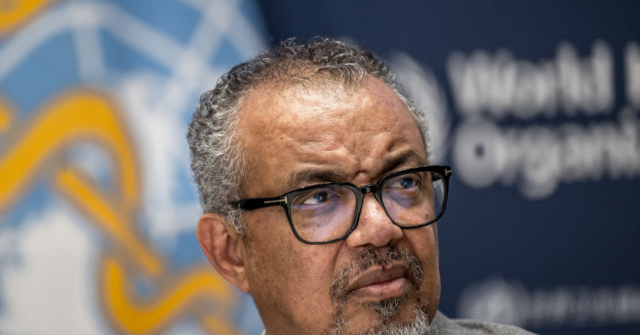Prepare to be watched. The World Health Organization (W.H.O.) adopted a landmark Pandemic Agreement on Tuesday designed to help it tackle future health crises predicated on an enhanced ability to watch, monitor and surveil specific national responses to threats.
The U.N. subsidiary is meeting at its headquarters by the shores of Lake Geneva in Switzerland with thousands of members flying in for the nine-days of talks, meetings, conferences, dinners, and closed-door diplomacy.
It has moved on the back of more than three years of negotiations sparked by the Chinese coronavirus pandemic as it seeks to chart a way forward after the U.S. withdrew funding from W.H.O. in the first days of the Donald Trump administration.
The U.S., traditionally the top donor to the U.N. health agency, was not part of the final stages of the agreement due to Trump’s exit, leaving the W.H.O. to grapple with a $1.7 billion gap in 2026-2027 spending plans as it seeks to trim 12 months of budget costs from $5.3 billion to $4.2 billion.

 www.breitbart.com
www.breitbart.com
I'm sure glad the USA is not a party to this. Monitor and surveil... Big Brother.
The U.N. subsidiary is meeting at its headquarters by the shores of Lake Geneva in Switzerland with thousands of members flying in for the nine-days of talks, meetings, conferences, dinners, and closed-door diplomacy.
It has moved on the back of more than three years of negotiations sparked by the Chinese coronavirus pandemic as it seeks to chart a way forward after the U.S. withdrew funding from W.H.O. in the first days of the Donald Trump administration.
The U.S., traditionally the top donor to the U.N. health agency, was not part of the final stages of the agreement due to Trump’s exit, leaving the W.H.O. to grapple with a $1.7 billion gap in 2026-2027 spending plans as it seeks to trim 12 months of budget costs from $5.3 billion to $4.2 billion.

Prepare to Be Watched: W.H.O. Agrees to Boost Global Pandemic 'Surveillance'
The World Health Organization (W.H.O.) adopted a landmark Pandemic Agreement designed to help it tackle future pandemic crises built on an ability to watch and surveil countries.
I'm sure glad the USA is not a party to this. Monitor and surveil... Big Brother.







